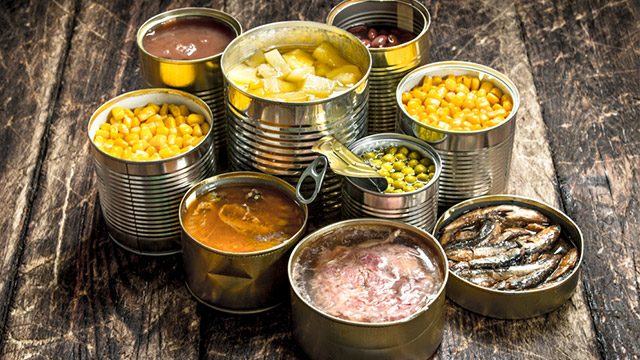SUMMARY
This is AI generated summarization, which may have errors. For context, always refer to the full article.

MANILA, Philippines (UPDATED) – The Department of Health (DOH) is eyeing taxes on salty food products following a recent report that Filipinos’ salt consumption exceed the World Health Organization (WHO) recommendation.
Health Undersecretary Eric Domingo told reporters on Wednesday, October 30, that although there are no concrete plans yet, the DOH and WHO are closely studying the possibility.
“Aside from sugar, the other nutrient component of food that we can alter actually and decrease to improve health outcomes is salt,” Domingo said.
Early in 2018, an excise tax on sugar-sweetened beverages was launched in the first package of the Tax Reform for Acceleration and Inclusion (TRAIN) Law. The law imposes and excise tax of P6 per liter on drinks containing caloric or non-caloric sweetener, and P12 per liter on drinks containing high-fructose corn syrup.
The DOH is thinking of proceeding in the same manner with salty products.
According to Domingo, diseases that could arise from high salt consumption are hypertension, heart disease, kidney diseases, and even stomach cancer.
Domingo said that if prices of salty food go up, people will opt for healthier, cheaper options. He also said it may lead producers of salty food to “consciously reformulate their products” for the price to go down and, even unintentionally, make their products healthier.
A recent report on the prevention and control of noncommunicable diseases (NCDs) in the Philippines said that Filipinos aged 20 years and older consume 4.29 grams of sodium per day, more than twice the WHO’s recommended 2 grams daily. Approximately 28% of cardiovascular deaths are attributable to high sodium consumption, the report also said.
According to Tony Leachon, a preventive health education and health reform advocate, taxing salty food would begin with processed food products, which use salt as a preservative. He said processed food may even contain nitrates, which may develop into more potentially cancer-causing compounds, like nitrite, during metabolism.
Leachon added that any legislation or policy decision formed out of the initiative to raise taxes on salty food must come with “a massive public health education” that would also involve the Department of Education and the Commission on Higher Education.
In a statement on Friday, November 1, Senator Win Gatchalian commended the prospect of taxing junk food, as they have “zero nutritional value.”
However, he implored the DOH to study more deeply taxing products like instant noodles and daing or dried fish.
“Daing is the main livelihood product of many of our provinces, such as Cebu and Zamboanga del Sur. Instant noodles [are] the typical go-to meal of many of our blue collar constituents,” the senator said. – Rappler.com
Add a comment
How does this make you feel?
There are no comments yet. Add your comment to start the conversation.